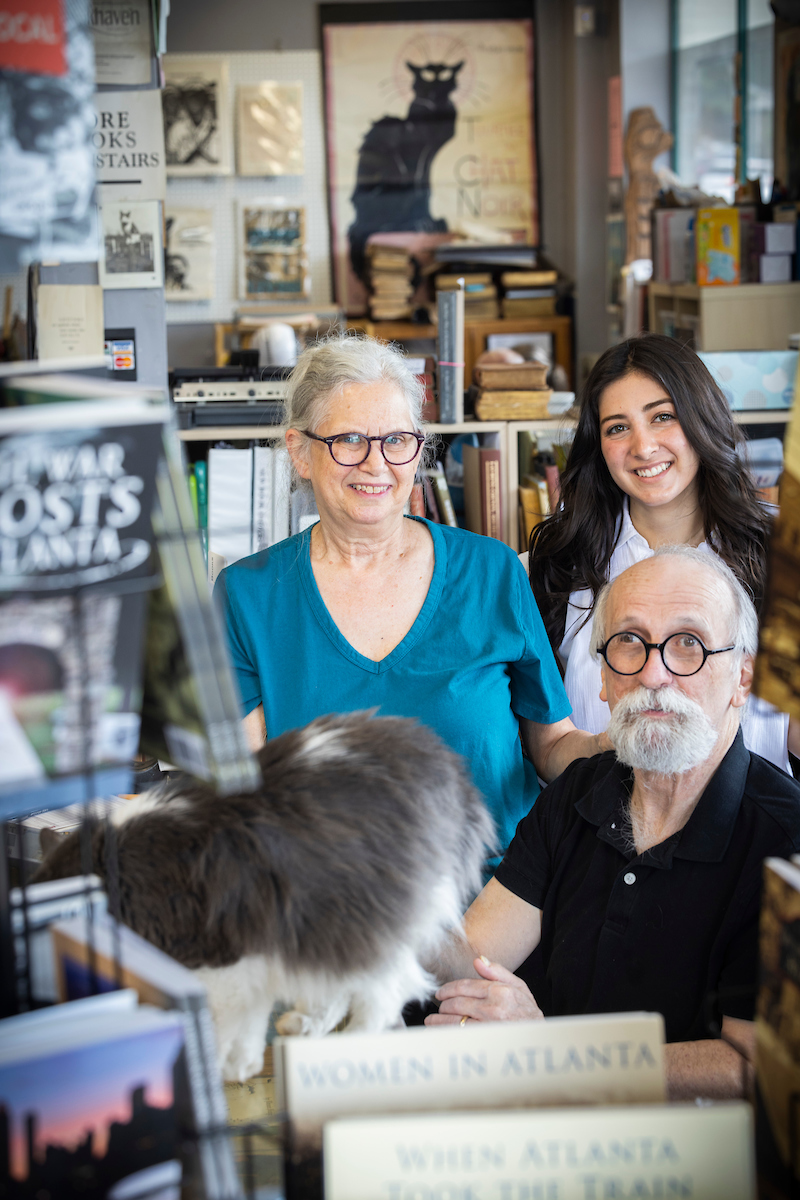During her time as a 2022 Humanities in Action (HIA) Fellow, Alexa Mohsenzadeh is crafting something of a love letter to her college experience.
As a member of the HIA’s Mapping Inequities program, the rising senior in Emory College of Arts and Sciences will spend the next year charting Atlanta Vintage Books. Her goal is to create a living document to guide others looking for comfort and connection in the shop a few miles north of the Emory campus.
“I chose to take it from the angle of music, where improvisation is just engaging with uncertainty,” says Mohsenzadeh, a Robert W. Woodruff Scholar in music and a percussionist in the Emory University Symphony Orchestra. “How you navigate through an independent book space, what you buy, is a way to understand you and the space itself.”
The project requires all new skills for Mohsenzadeh, a neuroscience and behavioral biology major with plans to become a human rights/public interest lawyer. She spent an intensive month of communal learning with other fellows this summer, learning how to create data visualizations.
She got the idea of using a map to show how a single location can have multiple meanings for different people after reading about how Becky Cooper used the same method in her book “Mapping Manhattan.”
Alexa Mohsenzadeh (and one of the store cats) with Jan Bolgla and Bob Roarty, owners of Atlanta Vintage Books
The yearlong fellowship will provide Mohsenzadeh with support from a global network of likeminded students and young professionals committed to human rights and citizen leadership. The ultimate goal is to use the maps in a way that helps engage Emory students and university events with the bookstore.
“We’re happy to lead people wherever they want to go, but often, it’s just up to them,” Bolgla says. “We are a community center for people in some ways. We want everybody to feel welcome.”
A project that aims to broaden community aligns with Mohsenzadeh’s skill as a citizen leader. Since arriving at Emory, she has launched Her Drive, a nonprofit that provides hygiene products to people in need; interned with New American Pathways to help newly arrived refugees; and conducted undergraduate research in feminist neuroscience with Deboleena Roy, Emory College’s senior associate dean for faculty and a professor in both neuroscience and behavioral biology and women’s, gender and sexuality studies.
The breadth and depth of that work, and the mapping project itself, are unusual at Emory, says Ed Goode, the Emory College director of experiential learning who worked closely with Mohsenzadeh when he was associate director of the Emory Woodruff Scholars program.
“Alexa is a meaningful risk taker,” Goode says. “She can generate the most amazing idea because she has so many things to draw from and is driven by the excitement of challenging herself.”
Mohsenzadeh’s next challenge is her honors thesis, examining and questioning the current legal frameworks’ value in emerging neuroscience.
Trips to the bookstore — where on a recent visit she bought a cookbook and short story collection, realizing only later that she had browsed several books in the death and dying section following the recent death of her grandfather — can be both invigorating and a respite.
“I realized later that I had emotionally handled the loss but not intellectually processed it, and reading helped,” Mohsenzadeh says.
“I want the maps to get at that sort of realization,” she adds. “It’s interesting how our movement and how we see our space tells us a lot about what is currently occupying our minds.”

